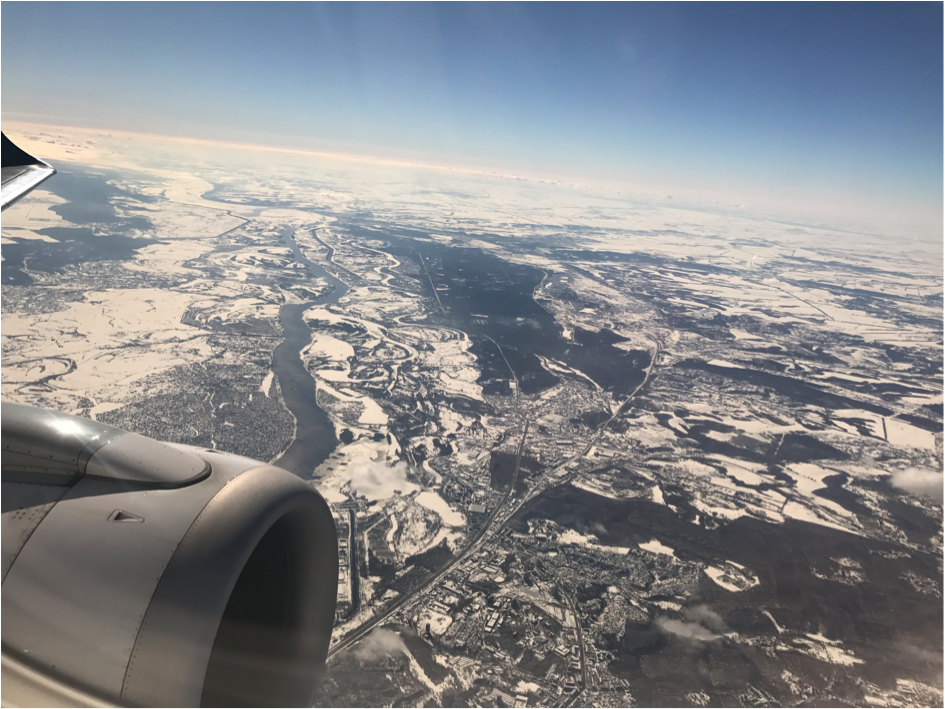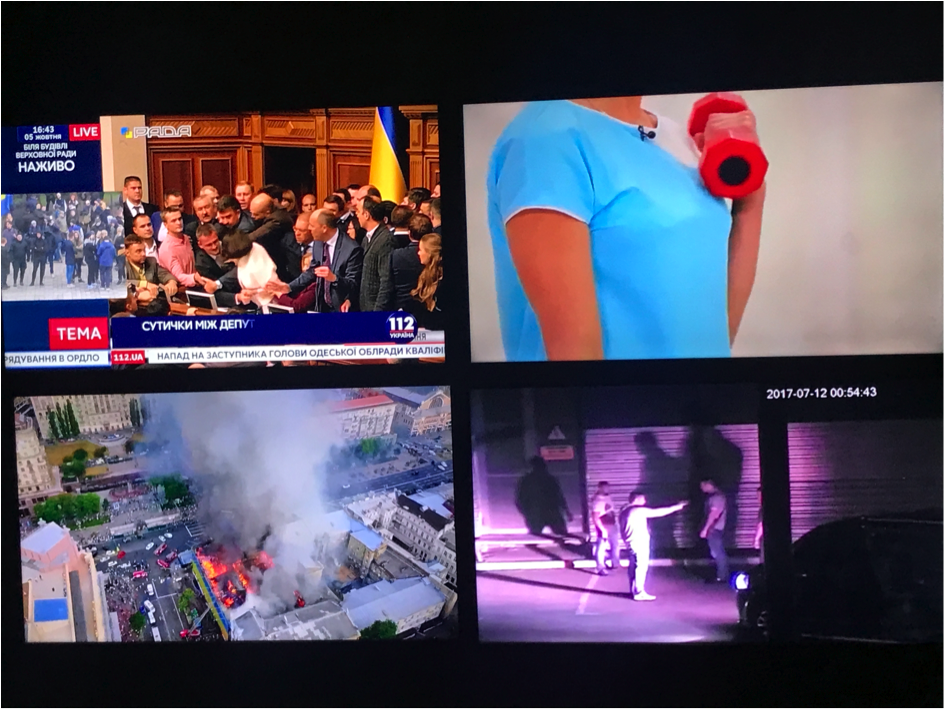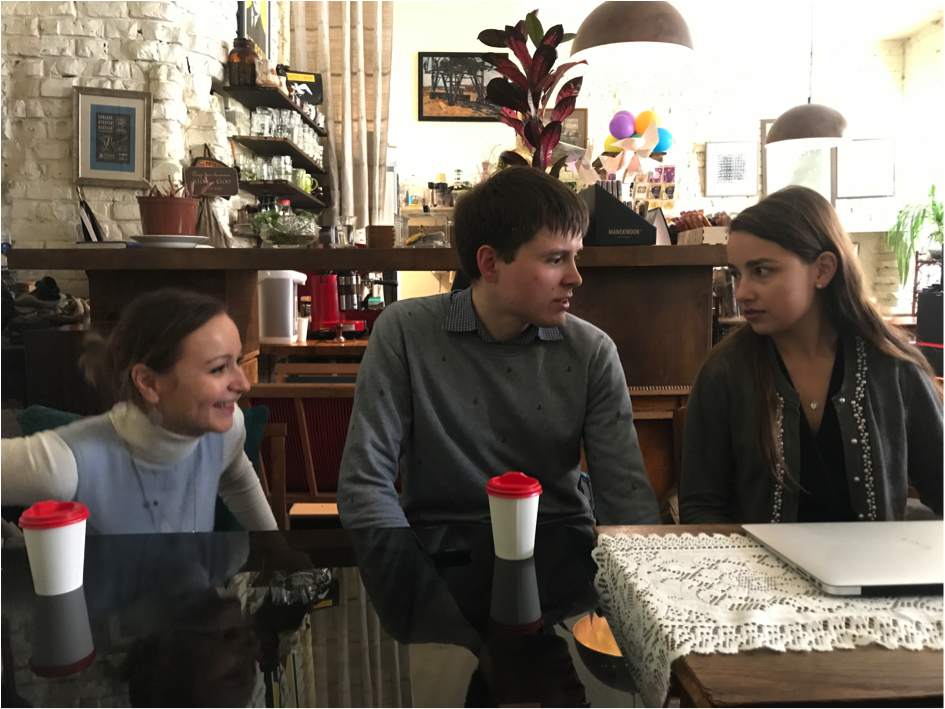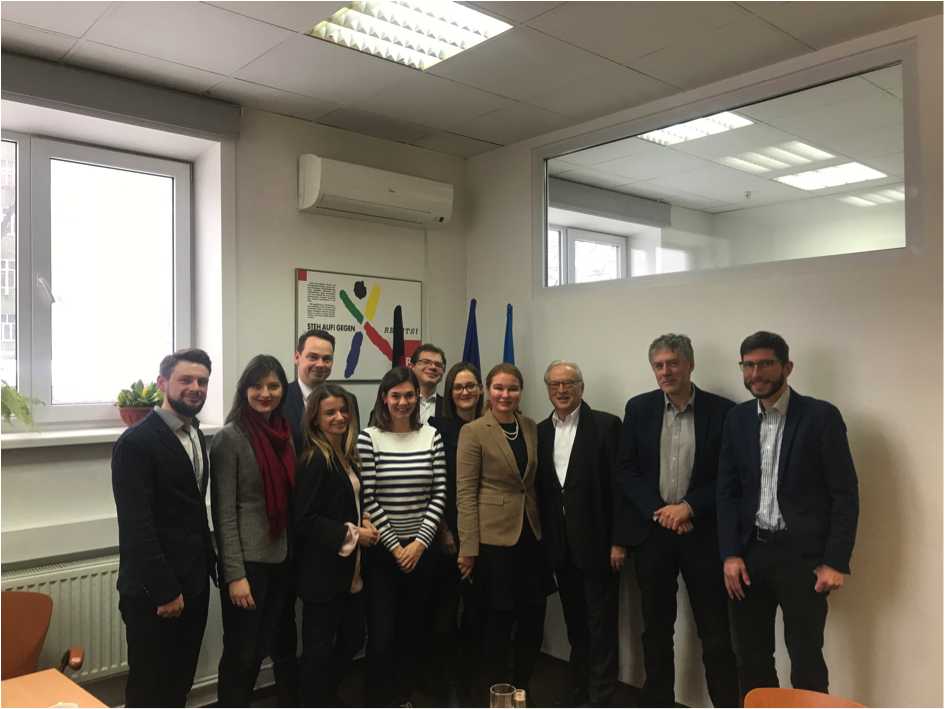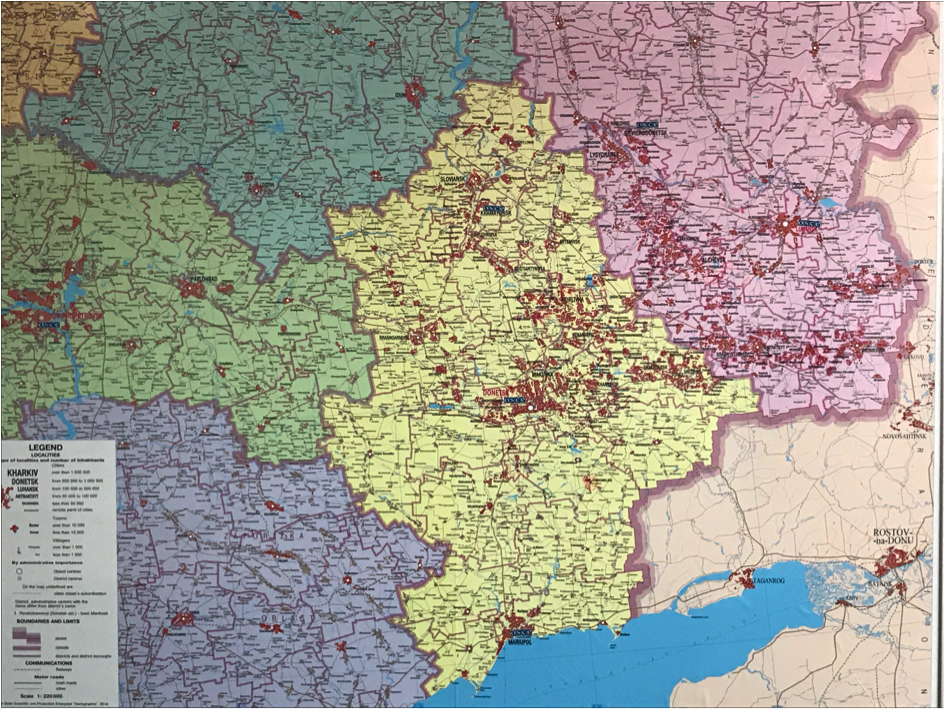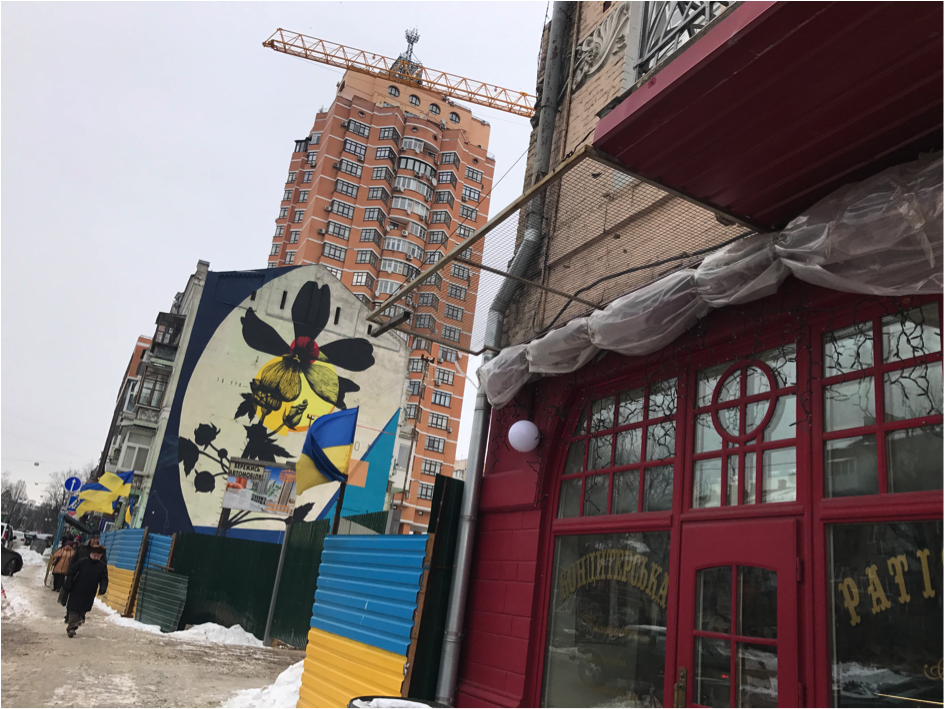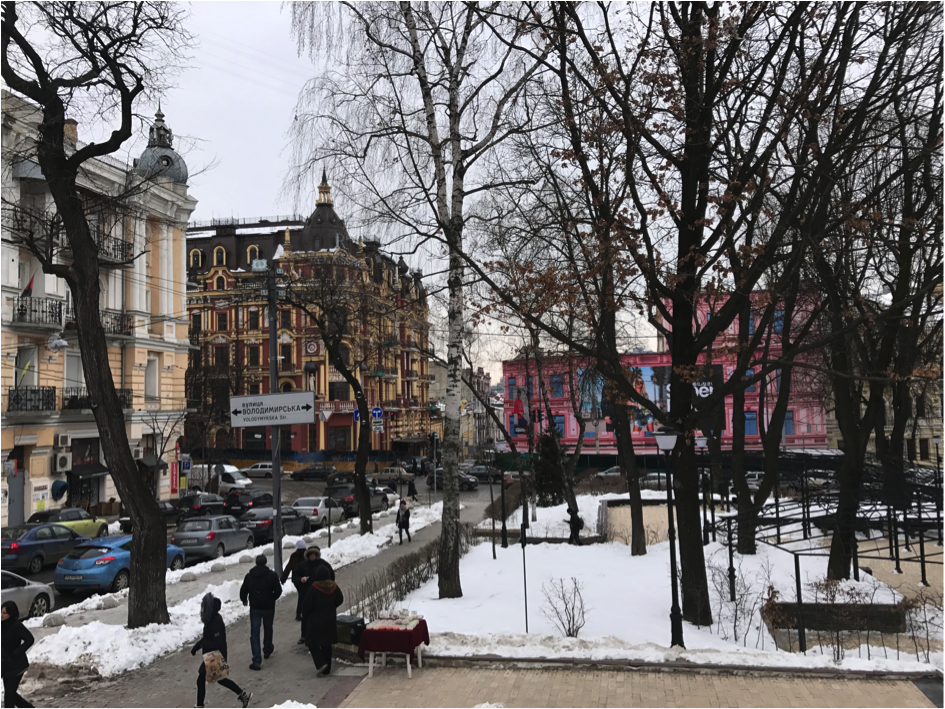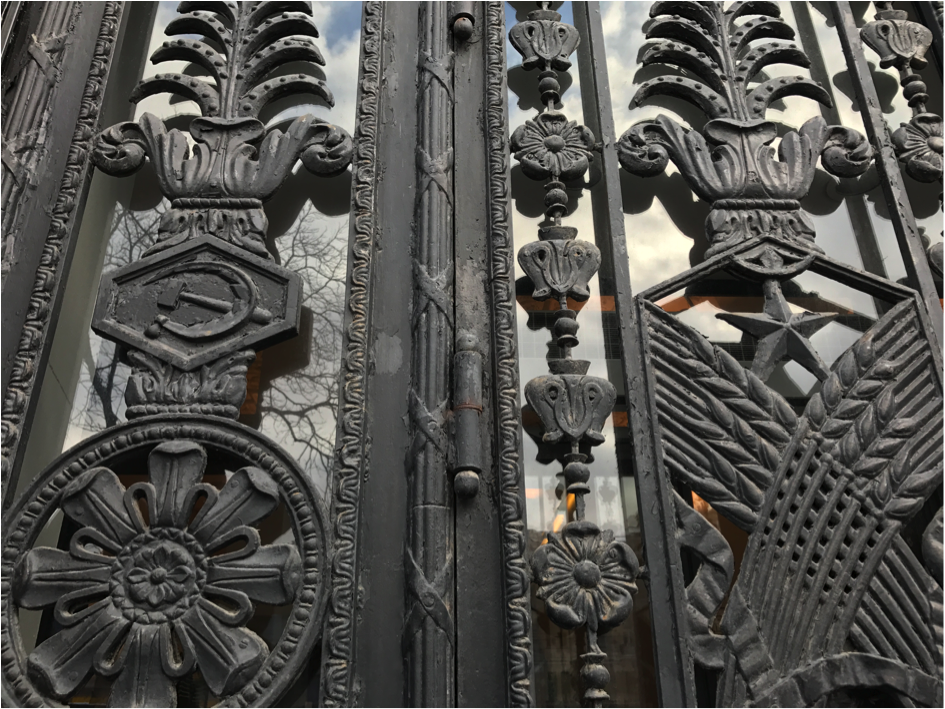No there is certainly not one truth, there never is. But in the case of Ukraine there are many truths and they are clearly expressed by different public and private personalities. The recent visit of our "Platform for Dialogue and Conflict Resolution in Ukraine" has proven the ambiguity of the situation in Ukraine again. The war in the eastern part of Ukraine and the occupation of the Crimea is always present. And that cannot be a surprise. For some it is an excuse not to touch other critical issues. Sometimes the lack of fundamental reforms and of a thorough fight against corruption is explained or even justified by the ongoing conflict with Russia and the separatists in the East. For others the war is the reason why issues of a modern society from feminism to human rights cannot be discussed in a proper way. This should be done when the war is over and especially when Ukraine has win this war - is the argument.
Two conflicts - one external, the other internal
The war is looming over all discussions and equally strong is the split between the society and politics. There is probably no country worldwide where the mistrust towards politics in general and against the leading politicians is as high as in Ukraine. Corruption, the dominant role of oligarchs in political life and the permanent political in-fights on the one hand and the "buying" of parliamentarians on the other hand are supporting the political skepticism of the public. For many our interlocutors this split and division in the Ukraine society is more important than the external conflict.
In addition it is also true that this conflict is used - sometimes misused - to construct a genuine Ukrainian society. Also the new language law, which enforces the use of the Ukrainian language in school is justified by the necessity to promote the formation of a Ukrainian society. Not only the Russian speaking population is affected by it but also the Hungarian, Slovak and Rumanian minorities are protesting against that law. Especially concerning these minorities students the law is supposed to create better opportunities to study at Ukrainian universities and to find adequate jobs. Again there is not one truth but different possible approaches, whatever the real motivation behind the law on using the Ukrainian language at school has been. And probably there are coinciding two approaches: the honest approach of strengthening the cohesion of the Ukraine society and the more nationalistic approach to cut the ties to Russia and to enforce the Ukrainian language on the Russian speaking part of the population.
Art and civil liberties
Looking at the cultural field there had been numerous attacks against art exhibitions and open debates on feminism and LGTB rights. Of course not everywhere and at all times. But when there had been attacks the perpetrators have benefited from a slow and disinterested police. The impunity of these perpetrators is more negative than the attacks as such. And it is interesting that in fact one can find ideological parallels between the nationalistic right in Ukraine and in Russia.
In this respect It was disappointing to hear from young activists of the civic platform of EuroMaidan that they would understand and even support, the resistance to discuss these issues now. It should be delayed until later as the priority now is to win the war. This attitude was clearly disappointing for us even while understanding the concentration of the Maidan people on influencing the government in changing the daily work of the administration. And most likely they did not want to confess that some of their hopes like changing the political system radically did not come true.
But we met also young leaders who want to work more bottom up for example by strengthen the young civil society by setting up youth centers with fora for open discussions. They do not see much possibilities to influence the existing parties. They rather want to help the establishment of an active civil society beyond the corrupt political structures.
The discussions we had with some young artist was particularly opening our eyes. They were free from political games. They were clearly defending the independence of Ukraine but defining also the domestic mistakes. They were unequivocally defending civil liberties and oriented towards the European way of establishing a strong civil society. In that sense they were very political without representing political parties. They expressed free opinions and ideas but with strong responsibility towards the society and the new Ukrainian nation. They were and are symbols of a sincere nation building without nationalism
Endurance of corruption
That is also true for the fight against corruption. The oligarchic system changed and there has been some changes in personalities. But it is still existing and is also expressed in the work and procedures in the Rada, the Ukrainian parliament. Some reforms have been decided but many have been blocked and that is also the case with the regionalization which is part of the Minsk agreement. Both sides are not really interested in the implementation of the Minsk agreement which should show a way out of the conflict. On the Ukrainian side it is predominantly the resistance to enhance the promised regionalization of the country which would give also the Eastern provinces a higher degree of autonomy.
The corruption also affecting the strength of the Ukrainian defense. In an article in the English language Ukrainian weekly, Kyiv Post one can read the following analysis: "Even as Ukraine's leaders tout progress in establishing a modern NATO-compatible army and a globally competitive military industry, reforms stall amid corruption, nepotism and non-transparent defense procurement."
The conflict in Eastern Ukraine
Concerning the conflict in the eastern Ukraine there is no visible progress. Both sides are violating the truce and use weapons for offensive or defensive purposes. Particularly bad is the laying of mines - mainly mines against tanks but also anti-person mines. And that although Ukraine has signed the Ottawa agreement - Russia has not signed this agreement. The passage of the contact line between the government controlled area and the non government controlled area is still possible but still connected with hardship and is sometimes dangerous.
And if people move out of the non government controlled area "permanently" they are seen as IDPs - Internally Displaced Persons". They would have to register in their new place to gain full rights from voting to social benefits. But that means to say goodbye to their original home. The question if they are well received in their new community has been answered differently by our interlocutors. Partly there was a very positive reaction and they have been welcome, partly they have been met with mistrust as representing an area with "orientation" towards Russia. And that is even more the case with people coming from the Crimea. These Ukrainian citizens are are often seen as the fifth colony of Russia.
The Crimean peninsula
And what about the general situation in the Crimean peninsula? Things are somewhat different as in Crimea there always was a higher percentage of people longing to "reunite' with Russia. One NGO representative who fled from this peninsula said that before the annexation there where about 40% of people wanting to join Russia again. And this is quite high and can easily be transformed into a majority.
An artist who left the Crimea told us that in her own region and in Sevastopol there was a huge pro-Russian majority. In addition in some areas in the Crimea the population was extremely poor without the government in Kiew caring to improve that situation and that nourished the hope to gain from uniting with Russia. But it was followed with many disappointments. Again it is the "ordinary" population - at least part of it - that is suffering from the annexation. Many had to give away their property for a compensation much lower than the real value. Freedom of expression is extremely curtailed etc. Many of those who are not actively welcoming Russian occupation are living in fear.
Nevertheless people of the Crimea can go to Ukraine proper but again with great hardship. They must have two passports a Ukrainian and a Russian one and show them to the relevant border guards. Whereas the Russian side has constructed a real border structure with the necessary amenities the Ukrainians do not want to recognize this division line as border. And again the citizens are suffering and have very often to pay illegal "fees" to the Ukrainian "border guards" to be able to pass into the Ukraine. I fully understand that Ukraine does not recognize the annexation of the Crimea. It was and is a gross violation of international law, but they should help the Ukrainian citizens from the Crimea with a minimum of amenities.
Concerning the legal questions, even people who speak of a gift of the Soviet Union to Ukraine must recognize that you just cannot revoke a gift one sided. And Ukraine after independence was formally and de facto recognized by Russia in the borders which included the Crimean peninsula. Furthermore the way many inhabitants of this peninsula are treated by Russia is not based on international law and human principles. As many realists see no hope for a return of the Crimea to Ukraine a more human attitude towards those people who have not been applauding the annexation would be necessary. It is unclear to me why President Putin is creating so many enemies in Russia's neighborhood by the - often brutal - way he allows his soldiers and officials to implement his geo-political aims on the ground.
Reforms instead of looking for domestic scapegoats
What are the ways out of the different crises? Concerning the domestic issues and in particularly the strong mistrust versus politicians some hope for a legislation to reintroduce a majority system with party lists to prevent the buying of directly elected "independent" members in order to form majorities. The buying of "independent" members of Parliament may be stopped by a new election system, but it would be necessary that the parties themselves would be more democratic and transparent. New leaders outside the oligarchic system would have to have a chance to be in leading positions. Independent medias must also be promoted and not persecuted. The existing strong ties between oligarchs and media must be cut.
Additionally the persecution of prominent individuals - as strange they may behave - must also stop. The former president of Georgia, Mikheil - Misha - Saakashvilli and the former Ukrainian pilot Nadija Sawtschenko who was imprisoned by Russia before she was handed over to Ukraine are two cases of strange persecution. Saakasvhilli was a student colleague of President Poroshenko and was later invited to come to Ukraine and fight against corruption. Sawtschenko was honored by President Poroshenko as a hero after her release. Both are now accused of supporting Russia. Saakashvilli was expelled and deprived of his Ukrainian citizenship and Sawtschenko was accused - during our visit to Kiew - by the Prosecutor General, Yuriy Lutsenk to blow up the Rada, the Ukrainian parliament she is member of. I would not like to defend these two personalities but the actions of the state authorities against them are very strange and can only be a part of a political game. The afore mentioned weekly Kyiv Post was writing: "Lutsenko's political circus robs Ukraine of real justice". Instead of mobilizing all forces to combat corruption and the oligarchic system, public attention is diverted towards the fight against some uneasy personalities.
Can a UN peacekeeping force help?
Concerning the conflict in the East the setting up of a UN peacekeeping force has been discussed. But of course a peacekeeping force can only keep peace once it is established. Just protecting the OSCE observers as the Russian side proposed is not enough. One would need to stop the daily shooting and then a peace keeping force could do its job and a transitional administration could be set up. But this force would have to cover the whole area and prevent new weapons to come into the non-government controlled area. On the other side it would have to prevent a sudden take over of the Eastern provinces by the Ukraine forces. A new construction of the state with stronger regional powers could be the precondition of a united Ukraine. But also some international understanding of the Ukraine embedding into the Western world would have to be found.
Even if the present tensions between the West and Russia are not conducive to peace talks and elaborate plans for conflict resolution we should not give up in designing possible ways out of the crisis. We had good discussions with a former Ukrainian diplomat, Vasyl Filipchuk of the International Centre for Policy Studies and want to continue to cooperate in discussing different approaches towards peace. We want to do that without illusions but with the determination not to accept the non-solution as permanent. The suffering of the people have to stop.
Sophisticated nation building
Anyway the Ukrainian society and political system is far from being ready to cope with the present difficult situation. One must refrain from interpreting the war situation as an excuse for postponing urgent domestic reforms. The fight against corruption and for the implementation of liberal principles could even enhance the building of an Ukraine nation. Nations in today's world cannot and should not being build on enforcing a nationalistic climate with one big outside enemy like Russia. Russia's violation of international law and humanitarian principles cannot justify the persistent violation of media freedom and the impunity of perpetrators who are attacking the freedom of art and speech. Nation building and establishing a proud Ukrainian society should be combined with a transparent political and economic system and full respect for civil liberties and human rights.
Leaving Kiew
Kiew -as always- was fascinating and lively. It was still full of snow and very cold. Again we could look at the interesting mixture of houses of different areas. Wealth and poverty are close to each other. Which is perhaps nice to see but also a demonstration of the lack of an even development and of attempts to reduce income inequalities. And these inequalities are also contributing to the strong mistrust of the population towards politics in general and the leading politicians in specific. And the lack of industrial investment possibilities leads to enormous building activities. As one of our interlocutors said, construction is the only chance to use one's money domestically and predominantly legal. But that may improve the faces of the cities especially of Kiew. It may also improve the housing situation of the poor if it would be social housing. But a strong construction sector is not enough for the modernization of the economy and for a high degree of sustainable employment. Nevertheless it is always exciting to visit the Ukrainian capital.

